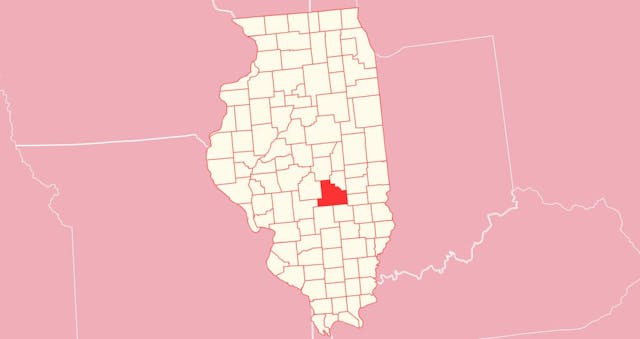Rehabs in Shelby
Shelby County is located in the state of Illinois, US. It was formed in 1827. Shelbyville is its seat.
According to the Illinois Department of Public Health, there were cases of addiction and abuse. It also registered deaths from drugs.
To help residents, Shelby County rehabs provide outpatient and mental health treatment, including various services.
Rehab Programs in Shelby County
Rehabs in Shelby County start healing from drug and alcohol (DUI) evaluation. They include outpatient and mental health assessment and drug screening.
Then, specialists determine the stage of a person’s substance addiction and refer them to the right care.
Inpatient (IP)
IP is residential care that supports patients 24 hours. It includes methods and strategies that vary across clinics. However, some modalities are common. Those are in-person and group counseling and various therapies. In detail, the majority are physical, behavioral, coping and life skills, and family therapies.
Some facilities may include massage, yoga, meditation, outdoor and indoor activities, 12-step meetings, etc.
This entire program is for 30 days. Before engaging anyone in any activity, doctors assess the condition of a person. How much will any of the cure options listed above help? These are steps that patients attend when they are ready.
Sometimes, a person finds it difficult to overcome the minimum requirements of drug addiction. In this case, they continue their treatment in the hospital for 60 or 90 days.
Partial Hospitalization (PHP)
PHP is known as day treatment since people get healing during the day and return home in the evening. Compared to IP, its structure is almost the same. Though, it is less frequent with a shorter duration.
PHP has various positive aspects. However, someone will benefit from it depending only on their unique abilities. People with co-occurring or dual-diagnoses disorders may also attend here.
Generally, PHP offers:
Medication management
Group and individual therapies
Recreational therapy
Addiction education for families
Relapse prevention counseling
Additionally, PHP cannot help everyone transition back to normal life. For that reason, many patients have to move to an outpatient program.
Outpatient (OP)
OP is the lightest and less restrictive stage of cure. It emphasizes relapse prevention, in-person and group counseling, and promotes long-term recovery.
OP may include the following groups:
12-step groups
Alcoholics Anonymous (AA)
Narcotics Anonymous (AN)
Lastly, it takes place 1-3 times a week and lasts between 3-6 months.
Specialty Rehab Centers
Specialty rehabs can differ from each other. Those can be luxury complexes, primary care facilities, clinics, or other centers. Very often, they stand out with special programs.
These facilities usually focus on specific areas of drug and alcohol addiction or abuse treatment. Besides, they can single out people who need special care.
So, medical centers in this province treat people who struggle with a co-occurring disorder. It means they have different psychological and behavioral issues. Alongside addiction doctors, mental health specialists cure patients.
Shelby County Community Services (SCCS) is a medical center providing outpatient and mental health healing programs. It also offers a complete evaluation, including screening, DUI, and referral services. The location and contact details are:
1810 W. South 3-rd Street
Shelbyville, IL 62565
Ph. Number: (217) 774-5587
Prices for Luxury Services
Not all provinces may offer luxury services for their residents. Clients preferring such complexes should seek those in other locations. People need to know that the methods are different in all centers. At last, this affects the fees.
In IL, IP costs an average of $1,500-3,500 for 30 days. If the cure lasts 60 or 90 days, it may be reduced. In addition, almost all clinics accept private insurance.
If someone does not have insurance, they may contact them for other options for a cure.
Forcing Teens Into Rehabilitation
All drug and alcohol rehab programs, including residential ones, are designed for persons at least 18 years old. Yet, not every teen is ready to take part in those plans.
When the child is not even 18 years old, this leads to more complicated problems. The reason for this is mainly the lack of appropriate services for minors. Either way, parents can not force teens into a rehab center. According to experts, the first step they can take is an honest talk. Then, families can find clinics in the state that will offer treatment options for minors.

